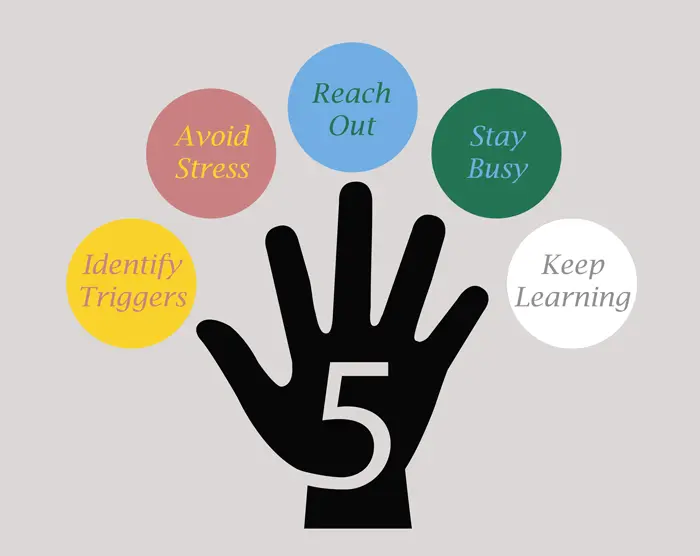How to Avoid Addiction Triggers: 5 Steps in the Right Direction
Many men and women learn, through treatment, that addiction doesn’t have to be a life sentence.
That said, it takes constant management and a keen sense of awareness to maintain sobriety. Now that you’re leaving your addiction treatment center, you’re about to embrace life again to the fullest. As all of these good things begin to happen, it’s important to recognize the risks you will face each day.
These risks include addiction triggers or situations that can spur a relapse. Taking yourself out of these high-risk scenarios isn’t hard to do, once you learn to anticipate them.
Take a look at some of the most common addiction triggers and consider how to avoid them. There’s no doubt you will encounter situations that heighten your cravings. Being able to recognize these and take action to prevent them from becoming a relapse is essential.
#1: Identify Your Personal Triggers First
Each person’s triggers are unique. For some people, getting high or drunk is the direct result of stress. For others, it is the result of just being in the vicinity of a club. Ask yourself:
- When do I think about drugs or alcohol the most?
- Which situations make me more likely to abuse a substance?
- What does using substances give me? Stress release? The ability to forget about responsibilities?
Once you identify what the triggers are, you can then begin to plan a way around them. In other words, you can learn to identify a trigger situation when it occurs and take steps right at that moment to move yourself from the risk.
#2: Avoid Stress
Many people face stress on a daily basis. At work, school, and at home, you may feel stress begin to creep up throughout the day. There’s no way to eliminate all stress from your life on a regular basis. However, you can learn to recognize when stress is building. Your shoulders tense up. Your head is pounding. All you can think about is getting out of the situation. When the stress trigger builds, take action at that moment to minimize it.
- Take a deep breath, close your eyes, and count to 10. Center yourself.
- Do something you enjoy. Go for a walk or a swim, or just listen to music.
- Work it out. When stress becomes too much, head to the gym to use exercise as a tool for getting rid of the tension.
#3: Pull in Others for Help
For some people, addiction triggers relate specifically to people. Being around the actions of one person can cause you to lose track. When a person or a person’s action is causing you to feel the trigger building, recognize the need to turn to someone for help. Whether you need to reach out for support from your addiction treatment center, a sponsor, or a close friend, don’t wait to get guidance and help.
#4: Stay Busy and Motivated
One common trigger that’s hard to avoid is boredom. You have nothing to do. You don’t want to watch TV, and there’s no one to spend time with. This scenario is common for those working towards reintroducing themselves to daily life after treatment. Staying busy helps keep your mind focused on the tasks at hand. What do you do when you’re bored and thinking about getting high or taking a drink?
- Create a list of things you could do. Plan this list in advance. For example, make a to-do list for the week. When you have down time, choose something from the list to do.
- Make a point of getting outdoors when you’re bored. Spend some time exploring a local park with a friend. Play some catch. Weed the garden.
- Join a new group. Whenever you have downtime, you have an opportunity to meet new people. You can do this through your place of worship, local recreation centers, and charities. Volunteer your time to help others.
#5: Keep Learning
The more you know about your addiction, the recovery process, and the triggers present throughout your day, the more powerful you are at taking steps to avoid them.
- Learn to improve communication with those you love. Work continuously on building strong relationships.
- Continue to learn why you are facing addiction and what put you on this path. Do you have co-occurring conditions worsening your risks?
- Explore new opportunities in every facet of your life. How can you be a better version of you? Learn a new hobby, explore a new career, take a step towards a meaningful relationship, or learn more about your community.
Iron Bridge Recovery
Triggers are present in everyone’s life. The way you react to them defines your future. At the Iron Bridge Recovery, we’re a phone call away if you are facing the onset of an addiction trigger right now. Don’t wait to seek out help that can keep you on the right path. Contact us 24 hours a day at (804) 729-8884 and let us help you get started on the road to recovery.





